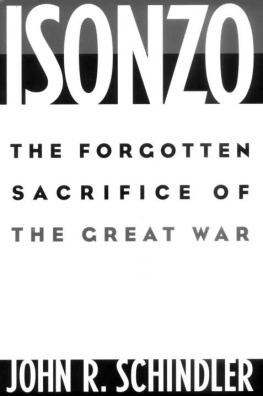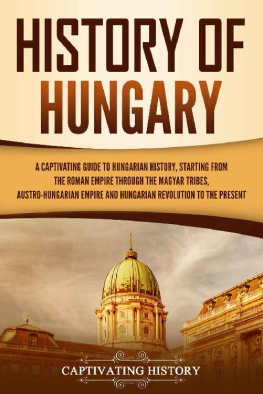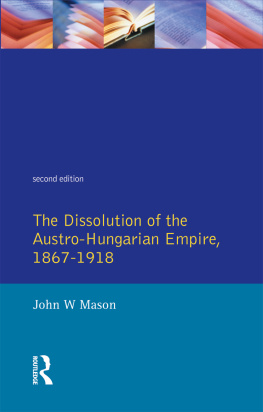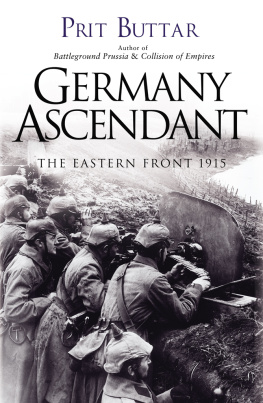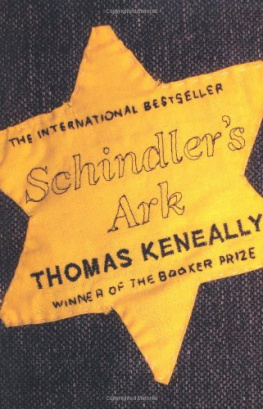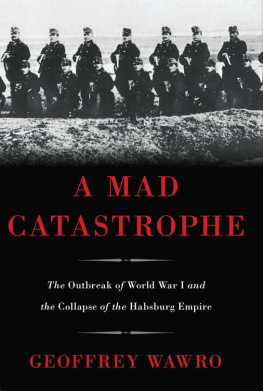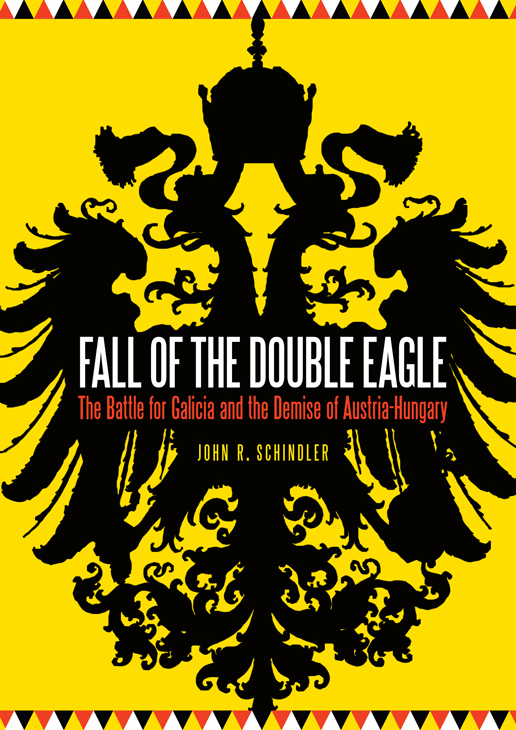
Among the recent books on the Great Wars long-neglected Eastern Front, this stands with the best.... Schindlers comprehensive research and measured judgment combine in an admirably balanced account of the disaster that foreshadowed the end of the Habsburg Empire.
Dennis Showalter, professor of history at Colorado College and author of Hitlers Panzers: The Lightning Attacks that Revolutionized Warfare
With a great deal of detail and even greater empathy, Schindler brings both the heroism and blunders of the Dual Monarchys doomed war effort to life. Both amateur World War I enthusiasts and specialists are forever in his debt for restoring the battle of Galicia to its proper place.
Avi Woolf, English editor of MIDA.org.il and blogger for the Times of Israel
Schindler has written a most exciting account not just of the Galician campaign of 1914 but of its significance for the collapse of Austria-Hungary during the First World War.... The reader comes away from this book astonished by the bravery of millions of men of a dozen nationalities, all betrayed by an ignorance of strategy, tactics, and logistics at the very top of the imperial army.
Alan Sked, professor of international history at the London School of Economics and author of Radetzky: Imperial Victor and Military Genius
This excellent account of Austria-Hungarys fateful role at the outset of the First World War highlights the insoluble dilemma of a two-front war against Serbia and Russia.... John Schindler has done a superb job in reconstructing one of the least known military debacles of a century ago.
Gyorgy Schopflin, member of the European Parliament for Hungary and author of Politics, Illusions, Fallacies
Fall of the Double Eagle
Fall of the Double Eagle
The Battle for Galicia and the Demise of Austria-Hungary
John R. Schindler
Potomac Books
An imprint of the University of Nebraska Press
2015 by the Board of Regents of the University of Nebraska
Cover designed by Roger D. Buchholz
All rights reserved. Potomac Books is an imprint of the University of Nebraska Press.
Library of Congress Cataloging-in-Publication Data
Schindler, John R.
Fall of the Double Eagle: the Battle for Galicia and the demise of Austria-Hungary / John R. Schindler.
pages cm
Includes bibliographical references and index.
ISBN 978-1-61234-765-3 (hardcover: alkaline paper)
ISBN 978-1-61234-804-9 (epub)
ISBN 978-1-61234-805-6 (mobi)
ISBN 978-1-61234-806-3 (pdf)
1. World War, 19141918Causes. 2. World War, 19141918CampaignsEastern Front. 3. World War, 19141918CampaignsGalicia (Poland and Ukraine). 4. Galicia (Poland and Ukraine)History, Military. 5. Habsburg, House of. 6. AustriaHistoryFranz Joseph I, 18481916. 7. Russia. ArmyHistoryWorld War, 19141918. I. Title.
D 512. S 34 2015
940.4'22dc23
2015013277
The publisher does not have any control over and does not assume any responsibility for author or third-party websites or their content.
Contents
As with any work years in the making, this book only came to fruition thanks to the encouragement and support of many people not the author. I want to thank my two academic mentors, Mark R. Peattie and John C. Campbell, who sent me down this road more than two decades ago, no more certain than I was where it might lead. Their wisdom about history taught me the profession, and I will be forever grateful. Thanks are also due to my friend and colleague Thomas M. Nichols, who provided counsel when it was needed, countless times, in good humor. Gratitude is also due to my friend Tim Hadley, whose contributions to this field have helped my own, proffering important wisdom when it was required.
Additionally, I want to express my gratitude to the Naval War College for its support of this book, including time and money to pursue research. Let me also extend a hearty thanks to the NWC Library for their unfailing help in tracking down ever more obscure books and articles from all over the world. No less, archivists and librarians at the Austrian State Archive deserve my thanks for their help during my multiple visits there.
Lastly, I want to express my profound gratitude to my family for all their love and support. My sons, Jack and Will, were unfailingly understanding about the many hours their father needed to spend time in World War One, as they put it, while my wife, Anna-Lena, may rightfully consider herself the last victim of the Galician campaign. Her love and support, emotional and material, made this book a reality, and I can never fully explain my thankfulness for her help with this effort as it came to completion, most gradually, amidst countless interruptions great and small, in Vienna, Newport, Florida, and Switzerland.
There were three great battles fought at the beginning of the Great War: the Marne near Paris; Tannenberg in what would today be northeast Poland; and Galicia, waged five hundred kilometers south of that, in the border region of present-day Poland and Ukraine. The first two battles have inspired voluminous literature practically since their conclusion, including recent quality monographs in English on both the Marne and Tannenberg. The significance of Germanys defeat at the Marne was evident from the moment it happened, because it ensured that Berlins hope of a quick, decisive victory over France evaporated; the result was the conflict became protracted, leading to four more years of the bloodiest war the world had ever seen. The compensatory German victory at Tannenberg, which broke Russias invasion of East Prussia into pieces, was less significant militarily, but it was a much-needed boost to German propaganda as well as a painful humiliation for the defeated. Both battles became the stuff of nationalist mythmaking, which would take historians decades to unravel.
By contrast the epic defeat of Austria-Hungary in Galicia has been consistently ignored by scholars and popular writers alike. This book is the first work in English to focus solely on the campaign, which despite its historical significance has been nearly forgotten. Yet its import was immense. For the Russians, this victory offset their debacle at Tannenberg and ensured that, despite whatever the Germans had won in East Prussia, they now had to contend with an ally that was militarily on the cusp of dissolution, needing major assistance. For Austria-Hungary, the defeat brought not just human catastrophe, including a hundred thousand soldiers killed in just three weeks but also the shattering of its standing army, the ultimate bulwark of the Habsburg monarchy. Military unpreparedness and deeply flawed generalship had engendered a defeat of unprecedented proportions. In the aftermath of its Galician debacle, Vienna had to raise a new army, one that survived until the end of the Great War, almost miraculously; but in the war against Russia this new army was only a ward of the Prussians and eventually their satellite. The outcome of the battle waged in Galicia in the late summer of 1914 thereby determined not only the course of the war on the Eastern Front, but also the ultimate demise of Austria-Hungary in the autumn of 1918.
How such an important battle has been all but forgotten seems to be an enigma, but upon closer examination the causes of this historical amnesia come into focus. In the first place, histories of the Great War in the English-speaking world focus overwhelmingly on the Western Front. In popular accounts, other fronts, where millions fought and died, customarily make an appearance only if they feature interesting English-speaking characters. The Eastern Front in particular has been underserved by historians, both popular and academic, and despite some progress in recent years it remains too much the unknown war that Winston Churchill famously termed it back in 1931. To be fair, the vast war waged in Eastern Europe from 1914 to 1918 is difficult for most English-language historians to unravel: the languages are obscure, the places are unfamiliar (and have often changed names several times since the war), and the characters seem unpronounceable and usually unheard-of to boot. However, with the centenary of the Great War, it is hoped that this persistent inattention to the Eastern Front will change permanently. If this book assists that effort, it will have served its purpose.


